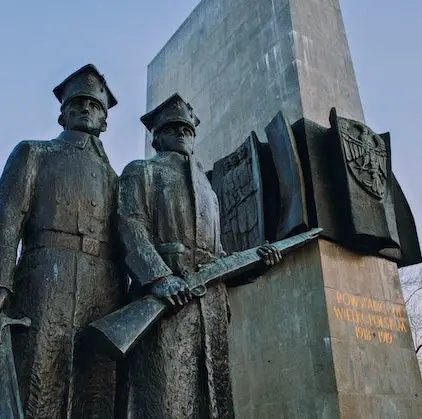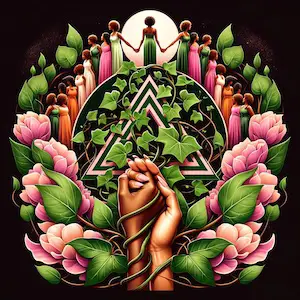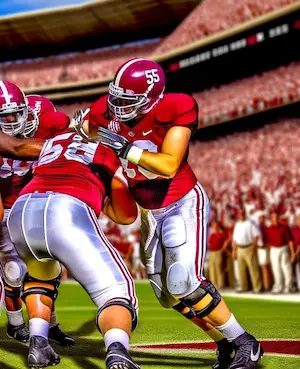Polish war chants and songs hold a special place in the hearts of the Polish people, embodying their unwavering spirit and rich cultural history. These powerful anthems have been a source of inspiration, unity, and strength for centuries. They have played an integral role in shaping the country’s identity, both on and off the battlefield.
In this article, we will explore a selection of these timeless war chants and songs.

Table of Contents
Polish war chants have long been an integral part of Polish history, culture, and tradition. These chants not only played a significant role in motivating and uniting soldiers during battles but also contributed to the development of Polish literature, music, and national identity. In this article, we’ll explore the history, significance, and evolution of Polish war chants, along with some famous examples.
The Importance of Polish War Chants
War chants were essential in Polish history because they served multiple purposes. They helped boost morale, foster unity, and give soldiers the courage they needed to face their enemies. Additionally, they helped preserve the Polish language and culture, as they were often passed down through generations orally.
History of Polish War Chants
Early History
The origins of Polish war chants can be traced back to the pre-Christian era. The chants typically combined religious and martial themes, invoking the gods to grant victory in battle.
The Middle Ages
During the Middle Ages, war chants became an essential part of Polish military tradition. They were often sung before battles and during military ceremonies. As Christianity spread throughout Poland, many chants began incorporating religious themes, further solidifying their significance in both spiritual and martial contexts.
Modern Times
In modern times, Polish war chants have evolved, but their historical significance remains. They are still sung during patriotic events, commemorations, and military ceremonies, serving as a powerful reminder of Poland’s rich history.
Famous Polish War Chants
- Bogurodzica
Polish lyrics: Bogurodzica dziewica, Bogiem sławiena Maryja, U twego syna Gospodzina Matko zwolena, Maryja! Zyszczy nam, spuści nam. Kyrie elejson.
English translation: Mother of God, virgin, praised by God, Mary, By your son, our Lord, chosen mother, Mary! Grant us, send us. Kyrie eleison.
- Hej, Sokoly!
Polish lyrics: Hej, sokoły, omijajcie góry, lasy, pola, Dzwoń, dzwoń, dzwoń dzwoneczku, mój zegaryku, dzwoń. A ty, dziewczyno, moja miła, żegnaj, żegnaj, żegnaj.
English translation: Hey, falcons, fly over the mountains, forests, fields, Ring, ring, ring my little bell, my watch, ring. And you, my dear girl, farewell, farewell, farewell.
- Rotmistrz Pilecki (Witold Pilecki’s Song)
Polish lyrics: Ojczyzna, wolność, honor – słowa drogie jak życie, Za które niejeden z nas oddałby życie, Witold Pilecki – rotmistrz, bohater wielki, Dla Polski, dla wolności, śmierć ponieść gotów.
English translation: Homeland, freedom, honor – words as precious as life, For which many of us would give our lives, Witold Pilecki – captain, great hero, For Poland, for freedom, ready to face death.
- Mazurek Dąbrowskiego (Polish National Anthem)
Polish lyrics: Jeszcze Polska nie zginęła, kiedy my żyjemy. Co nam obca przemoc wzięła, szablą odbierzemy.
English translation: Poland has not yet perished, as long as we still live. What foreign violence has taken from us, we will take back with the sword.
- Czerwone maki na Monte Cassino
Polish lyrics: Czerwone maki na Monte Cassino, Zamiast rosy piły polską krew.
English translation: Red poppies on Monte Cassino, Instead of dew, they drank Polish blood.
- My, Pierwsza Brygada
Polish lyrics: My, Pierwsza Brygada, strzelecka gwardia, Walczyć i zwyciężać gotowa zawsze stąd.
English translation: We, the First Brigade, the shooting guard, Ready to fight and win, always from here.
- Hej, Kozacy!
Polish lyrics: Hej, Kozacy, na konie, na konie, Za Ojczyznę, za wolność, idziemy w bój.
English translation: Hey, Cossacks, to the horses, to the horses, For our homeland, for freedom, we go into battle.
- Warszawianka 1905
Polish lyrics: Nie rzucim ziemi, skąd nasz
ród, Nie damy pogrześć mowy! Polski my národ, polski lud, Królewski szczep piastowy.
English translation: We won’t leave the land where we were born, We won’t let our language be buried! We are the Polish nation, the Polish people, The royal Piast tribe.
- Rota (The Oath)
Polish lyrics: Nie będziemy dłużej cierpieć, co nasz dziad przetrzymał, Już nam basta krzywd i sromot, znoju i poniżej. Naród pragnie wolności swej, nie wiedzie go przypadek, Wole ludu, wole serc – to Rota i to oręż!
English translation: We will no longer suffer what our forefathers endured, Enough of the harm and disgrace, the hardship and humiliation. The nation longs for its freedom; it’s not led by chance, The will of the people, the will of the hearts – this is the Oath and this is the weapon!
- Pieśń Legionów Polskich we Włoszech (Song of the Polish Legions in Italy)
Polish lyrics: Legiony to żołnierska nuta, Legiony to straceńców los, Legiony to orląt odwaga, To żołnierza duma i stos.
English translation: Legions are a soldier’s tune, Legions are the fate of the doomed, Legions are the eagles’ courage, It’s a soldier’s pride and pyre.
- Gdy naród do boju (When the Nation Goes to Battle)
Polish lyrics: Gdy naród do boju, z orężem w dłoni, Za wolność, za chwałę, za ojczyznę swą, Walczyć gotów każdy, jak jeden mąż, Za wolność, za chwałę, za ojczyznę swą.
English translation: When the nation goes to battle, with weapons in hand, For freedom, for glory, for their homeland, Every one ready to fight, as one man, For freedom, for glory, for their homeland.
- Płyną tratwy (The Rafts Are Floating)
Polish lyrics: Płyną tratwy przez Puszczę Białowieską, Na tratwach młodzi partyzanci, Wolną Polskę przynieść idą, Wolność Polsce przynieść idą.
English translation: The rafts are floating through the Białowieża Forest, On the rafts, young partisans, They’re coming to bring a free Poland, They’re coming to bring freedom to Poland.
- Pieśń Sybiraków (Song of the Siberian Exiles)
Polish lyrics: W tę noc przedświąteczną, pełną jasnych gwiazd, My tu na obczyźnie, Sybiracy bracia, Zanosim serca ciche, żarliwe życzenia, By Polska była wolna i życie szczęśliwe.
English translation: On this night before the holidays, full of bright stars, We, the Siberian exiles, brothers, Offer our quiet hearts and fervent wishes, For Poland to be free and life to be happy.
- Marsz Gwardii Ludowej (March of the People’s Guard)
Polish lyrics: My, Gwardia Ludowa, idziemy w śmiertelny bój, Za wolność naszą, waszą, za przyszłość dzieci swoich, Niechaj hasłem bojowym niepodległość będzie, Za ojczyznę, za wolność, do zwycięstwa niech nas wiedzie!
English translation: We, the People’s Guard, are going into a deadly battle, For our freedom, your freedom, for the future of our children, Let the battle cry be independence, For our homeland, for freedom, let it lead us to victory!
- Marsz Młodych (March of the Youth)
Polish lyrics: My, młodzież polska, z sercem w dłoni, Gotowi zginąć za Polskę, za wolność, za chwałę, Niech głos nasz słyszany będzie przez cały świat, My, młodzież polska, za wolną Polskę!
English translation: We, the Polish youth, with our hearts in our hands, Ready to die for Poland, for freedom, for glory, Let our voice be heard throughout the whole world, We, the Polish youth, for a free Poland!
- Pieśń Powstańców Warszawskich (Song of the Warsaw Uprising Fighters)
Polish lyrics: Walczyliśmy razem, ramię w ramię, brat do brata, Za wolność, za ojczyznę, przez ogień i krew, Warszawo, miasto bohaterów, będziesz wiecznie w naszych sercach, Nigdy nie zapomnimy, co dla Polski uczyniliśmy.
English translation: We fought together, shoulder to shoulder, brother to brother, For freedom, for our homeland, through fire and blood, Warsaw, city of heroes, you’ll be forever in our hearts, We will never forget what we did for Poland.
- Ballada o Janku Wiśniewskim (Ballad of Janek Wiśniewski)
Polish lyrics: Leżą tam na bruku, czarny krzyż i róża czerwona, Tam gdzie zginął Janko, tam gdzie krew przelał za wolność, Niechaj każdy wie, że Janko Wiśniewski nie umrze, Duch jego żyje wiecznie wśród Polaków, wśród nas.
English translation: There they lie on the pavement, a black cross and a red rose, Where Janek died, where he shed blood for freedom, Let everyone know that Janek Wiśniewski will not die, His spirit lives forever among Poles, among us.
- Pieśń Partyzantów Ziemi Lubelskiej (Song of the Partisans of Lublin Land)
Polish lyrics: O, Ziemi Lubelskiej, żołnierze twoi, twoi synowie, Walczyć będą za ciebie, za wolność, za chwałę, Niechaj cały świat wie, że Polska walczy i zwycięża, My, partyzanci Ziemi Lubelskiej, za wolną Polskę!
English translation: Oh, Lublin Land, your soldiers, your sons, Will fight for you, for freedom, for glory, Let the whole world know that Poland fights and wins, We, the partisans of Lublin Land, for a free Poland!
- Warszawo, ma (My Warsaw)
Polish lyrics: Warszawo, ma, twoje ulice i place, Twój duch niepokonany, twa siła, twa chwała, Niechaj cały świat wie, że Warszawa nie zginęła, My, warszawiacy, zawsze będziemy z tobą!
English translation: My Warsaw, your streets and squares, Your indomitable spirit, your strength, your glory, Let the whole world know that Warsaw has not perished, We, the Varsovians, will always be with you!
- Pieśń Powstańców Listopadowych (Song of the November Uprising Fighters)
Polish lyrics: Walczyliśmy za wolność, za ojczyznę, za przyszłość, Za Polskę, która umiera, ale zawsze powstaje, Niechaj świat wie, że Polacy nigdy nie poddają się, My, powstańcy listopadowi, dla Polski do końca.
English translation: We fought for freedom, for our homeland, for the future, For Poland, which dies but always rises, Let the world know that Poles never surrender, We, the November Uprising fighters, for Poland till the end.
Polish War Chants in Music and Culture
Traditional Music
Polish war chants have greatly influenced traditional Polish music, with many folk songs and melodies drawing inspiration from them. These chants serve as a testament to the resilience and unity of the Polish people throughout history.
Modern Interpretations
In recent years Polish war chants have seen a resurgence in popularity, with contemporary musicians and artists incorporating them into their works. This fusion of modern styles and traditional elements has led to a new generation of listeners discovering and appreciating the historical significance and emotional power of these chants.
Preserving and Sharing Polish War Chants
Efforts have been made to preserve and share Polish war chants with future generations. Museums, cultural centers, and educational institutions have taken steps to document and study these chants, ensuring that their historical and cultural significance is not lost. Additionally, performances, recordings, and digital platforms make these chants more accessible to a broader audience, both within Poland and internationally.
Conclusion
Polish war chants have played a vital role in shaping Poland’s history, culture, and national identity. From their early beginnings to their modern interpretations, these chants have served as a source of inspiration, unity, and strength for the Polish people. By preserving and sharing these chants, we can ensure that future generations continue to appreciate and celebrate this unique and powerful aspect of Polish heritage.
Polish War Chants Frequently Asked Questions
What is the purpose of Polish war chants?
Polish war chants were originally used to boost morale, foster unity, and give soldiers courage during battles. They have since become a vital part of Polish culture and national identity, often sung during patriotic events and military ceremonies.
What is the oldest known Polish war chant?
Bogurodzica, a hymn composed in the 13th century, is one of the oldest known Polish war chants. It was sung by Polish knights before the Battle of Grunwald in 1410.
How have Polish war chants influenced music and culture?
Polish war chants have greatly influenced traditional Polish music, with many folk songs and melodies drawing inspiration from them. They have also been incorporated into modern music, helping to introduce a new generation to their historical significance and emotional power.
How are Polish war chants preserved and shared today?
Polish war chants have greatly influenced traditional Polish music, with many folk songs and melodies drawing inspiration from them. They have also been incorporated into modern music, helping to introduce a new generation to their historical significance and emotional power.
See Related Posts

Gregorian Christmas Chants

Love Spell Chants

Best Softball Chants for U12

AKA Sorority Chants

Argentina Football Chants

Short Chants and Cheers

Alabama Football Chants

Everything to Know About African Chants

